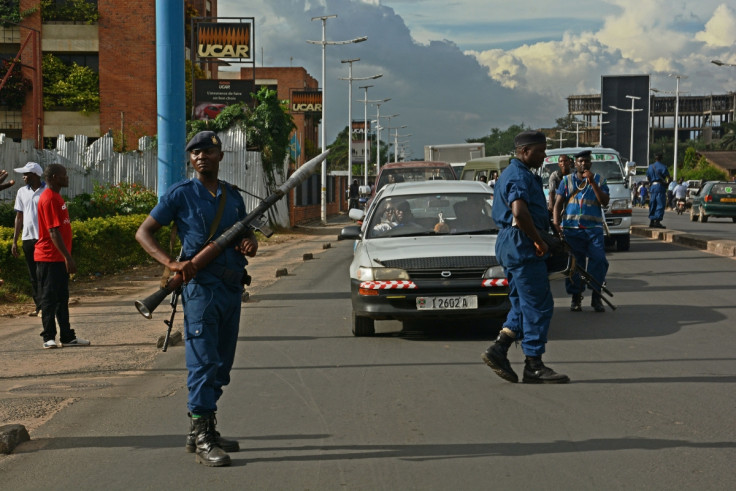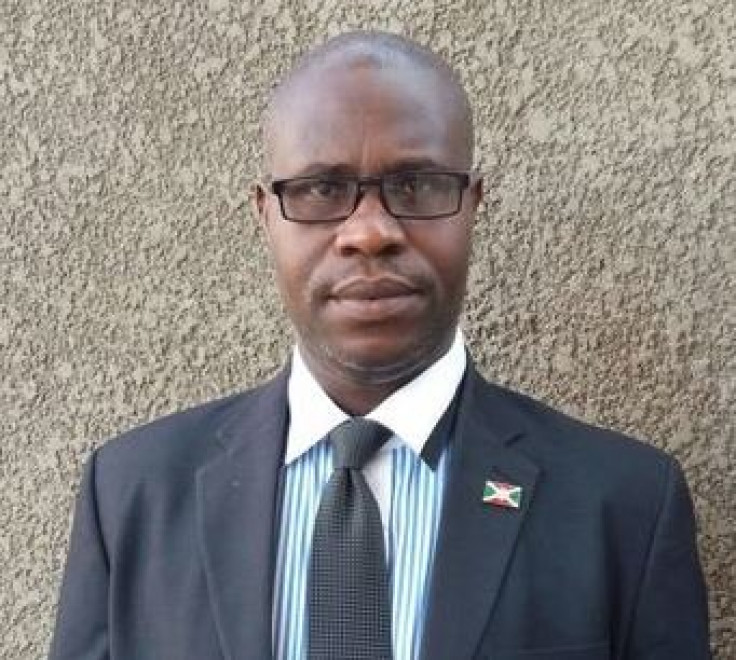Burundi: Government denies UN findings that violence has 'ethnic twist'
Human Rights Minister Martin Nivyabandi says security operations in 'respect of international law'.

The government of Burundi has rejected claims made by the United Nations (UN) High Commissioner for Human Rights last month that the unrest and violence is ethnically motivated.
In a report he delivered to the UN Human Rights Council on 29 June, UN human rights chief Zeid Ra'ad Al Hussein voiced fears the deadly political violence that has rocked the country for more than a year could escalate into an ethnic conflict between the Hutu majority and Tutsi minority.
"In the south of the country, I have also been informed of speeches by members of the Imbonerakure amounting to incitement to violence against political opponents, with strong ethnic overtones," he said, referring to the youth wing of President Pierre Nkurunziza's ruling CNDD-FDD party.
Nivyabandi: United Nation's reports are 'false'
The Burundian Minister of Human Rights, Social Affairs and Gender, Martin Nivyabandi on Tuesday (5 July) rejected these claims, saying they were "negative and false media reports about inter-ethnic relationship in our country".
According to the Minister, the United Nations "has endorsed the false view" that Burundi's security forces carry out targeted killings of members of the Tutsi community.
In a statement sent to IBTimes UK, Nivyabandi highlighted the ethnic "inclusiveness" of Burundi's institutions, in line with the Arusha Accord, the Unity Charter and the Constitution. "The Government of Burundi reiterates its determination to continue to uphold the unity of Barundi (the people of Burundi) and protect its citizens," the Minister said.
Security operations 'respect international law'
Nivyabandi also denied allegations that the majority of arbitrary executions in the country had been carried out by Burundi's security forces.
The UN report found there had been at least 348 cases of arbitrary executions between April 2015 and April 2016, the majority of which have been carried out by "police officers, National Intelligence Service (Service National des Renseignements – SNR) officers, and after October 2015, by members of the anti-riot brigade".

Despite a respite in the killings, Zeid also warned cases of arbitrary arrests, detention and torture have continued while ex-officers of the defunct armed forces (dubbed ex-FAB) had been killed because of their Tutsi ethnicity.
"The operations being carried out by security forces are done mainly in respect of international humanitarian law and aim to disarm all criminals indistinctly and thus not target any specific ethnic group contrary to what is spread in the media," Nivyabandi stated.
Burundi's army has an equal split of the country's two main ethnic groups − soldiers of the former regime, the predominantly Tutsi ex-Armed forces of Burundi (ex-FAB), and fighters of the majority Hutu rebel groups comprising members of former rebel factions like the current ruling party that were fighting against the Tutsi-led regimes before the war ended (dubbed Parties and Armed Political Movements, ex-PMPA).
While the integration of both factions was seen as a great achievement of the 2000 Arusha peace agreement, the political crisis that has rocked the central African nation for more than a year now has laid bare deep internal divisions in the army.
On 25 April, Nivyabandi and his wife were slightly injured in a grenade attack as they were leaving a church in Bujumbura's Nyakabiga neighbourhood - an attack the government described as an assassination attempt.
Towards an ethnic-motivated conflict?
There have been growing fears that the central African nation could be sliding into a Rwandan-style genocide after a number of calls for ethnic-motivated massacres in Burundi emerged on social media over recent months – orders the embattled authorities and the opposition have condemned.
The increased violence and incitement echo past Hutu-Tutsi ethnic conflicts in the country, that resulted in the slaughter of between 80,000 and 200,000 Hutus by the Tutsi army in 1972, and the civil war that ran from 1993 to 2005, when some 300,000 people were killed. During that time, neighbouring Rwanda also witnessed massacres which cost more than one million lives.
Meanwhile, Gregory Stanton, the founder of Genocide Watch, in March warned that a genocide was "in preparation", saying that the political conflict may be more far-reaching than the UN might want to admit. The Burundian government has denied the claims.
© Copyright IBTimes 2024. All rights reserved.









